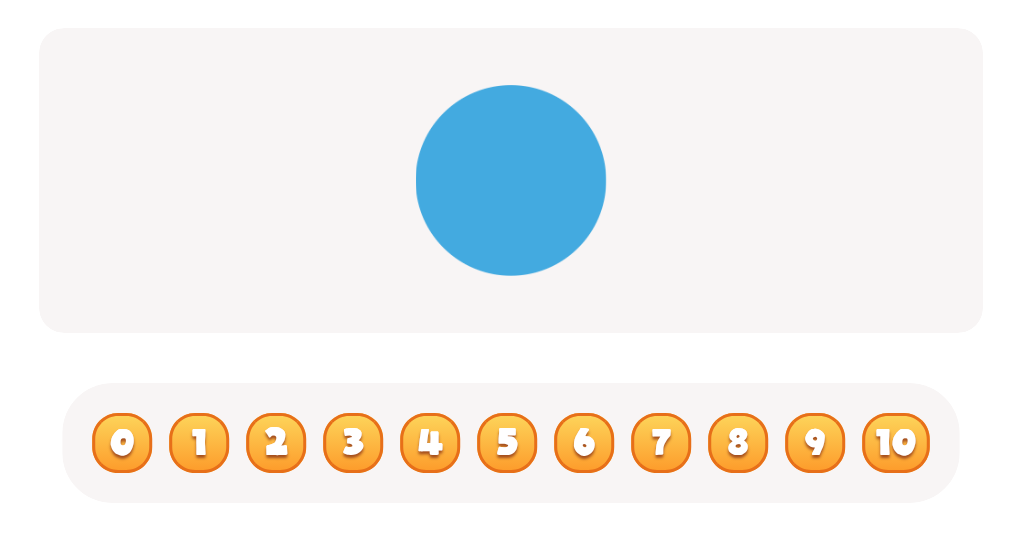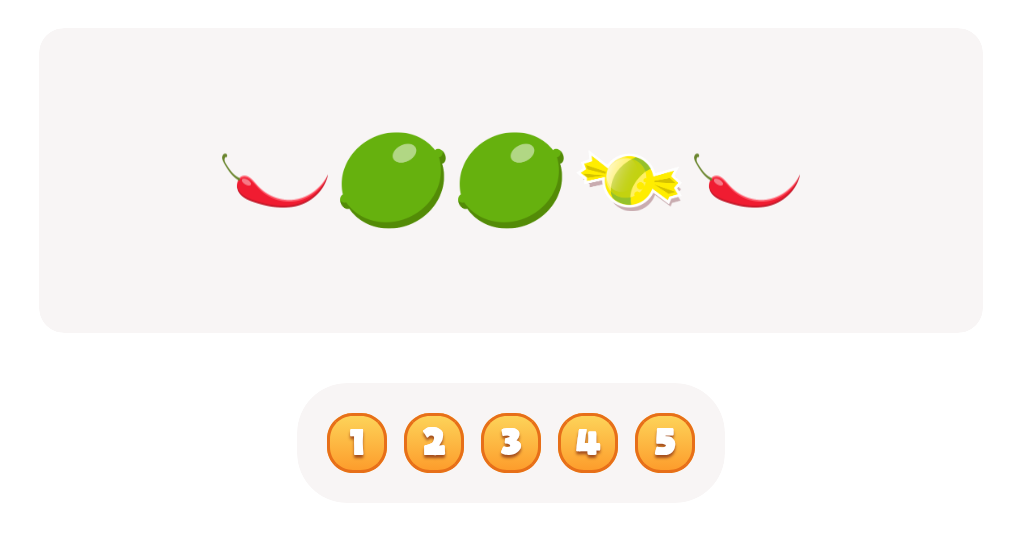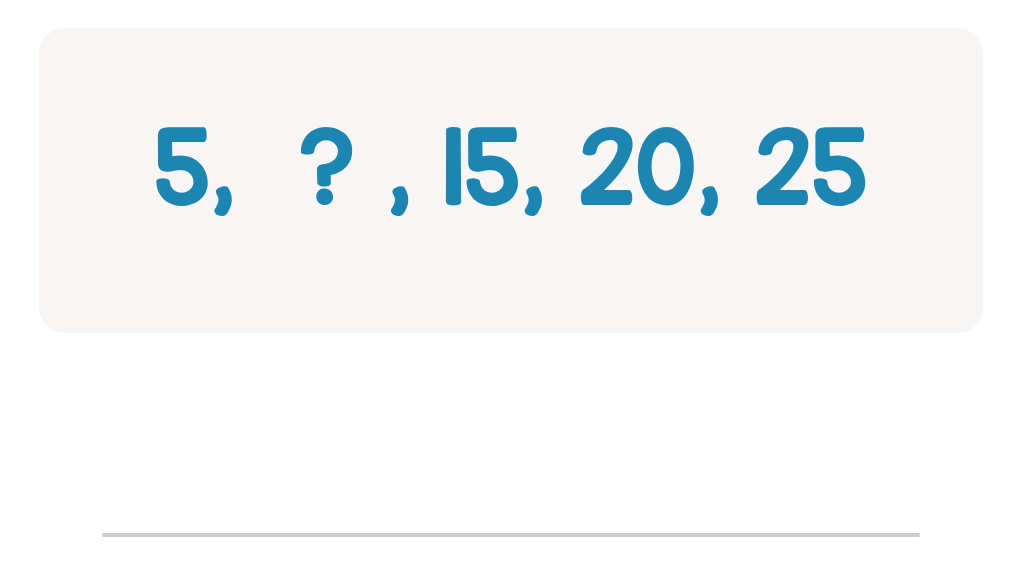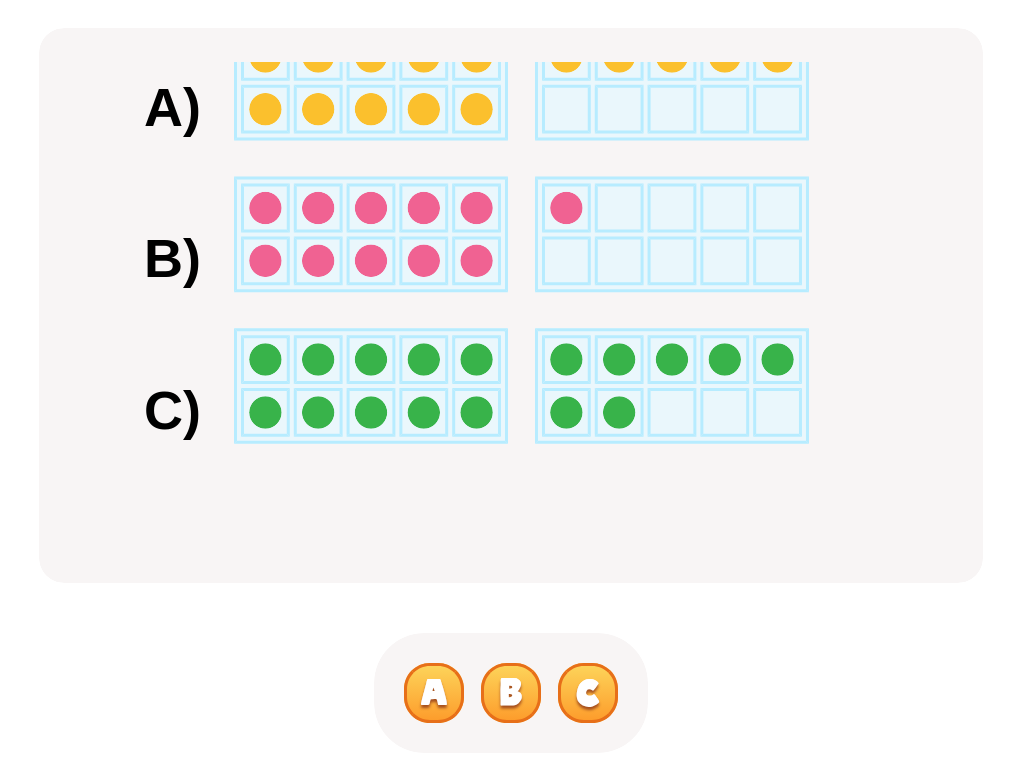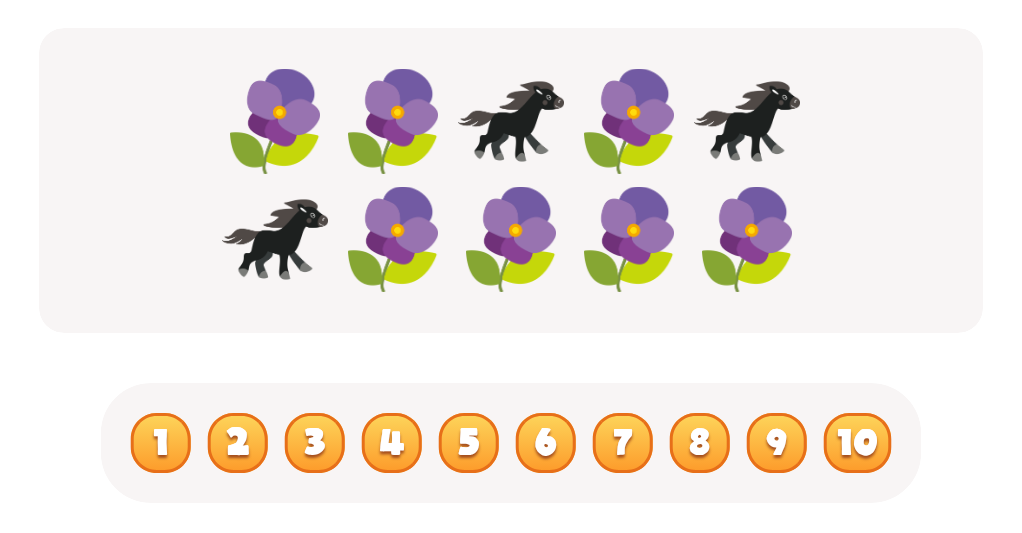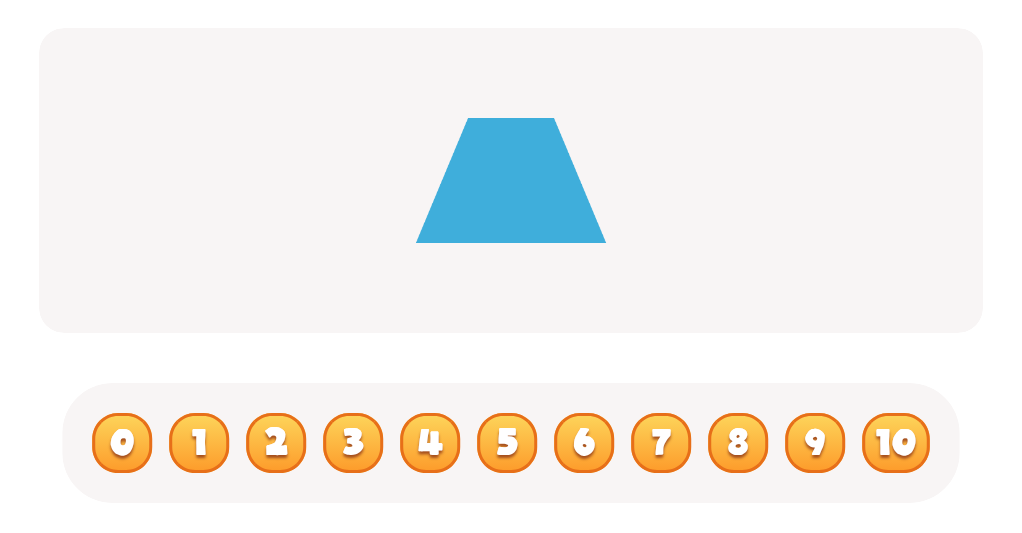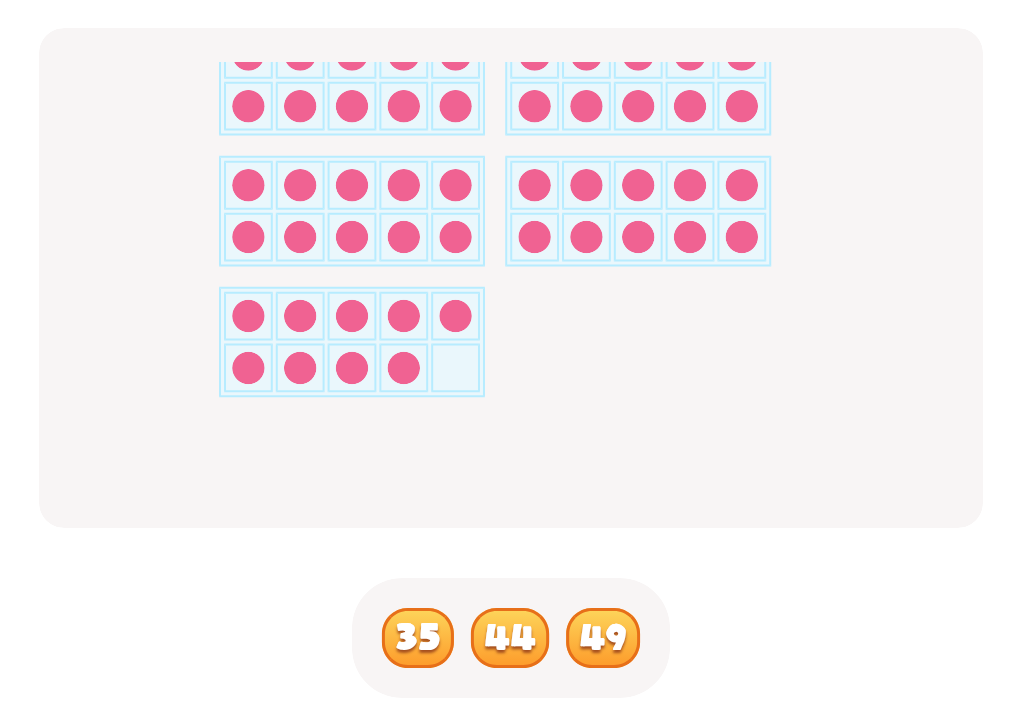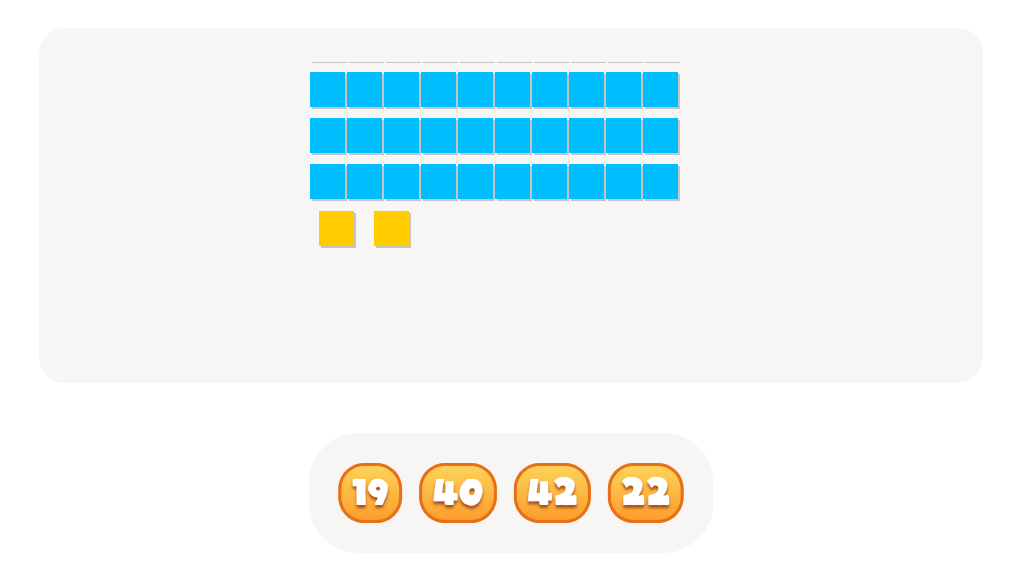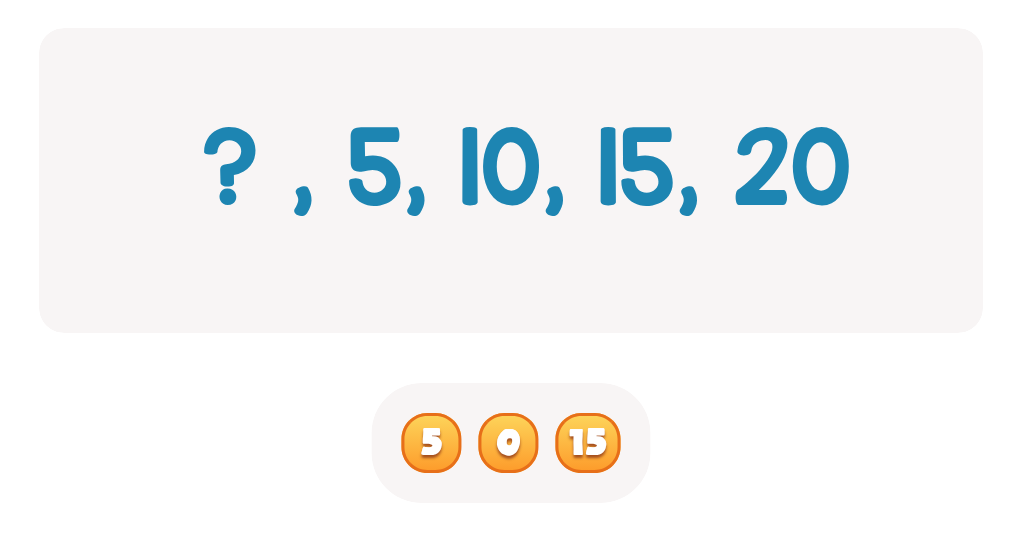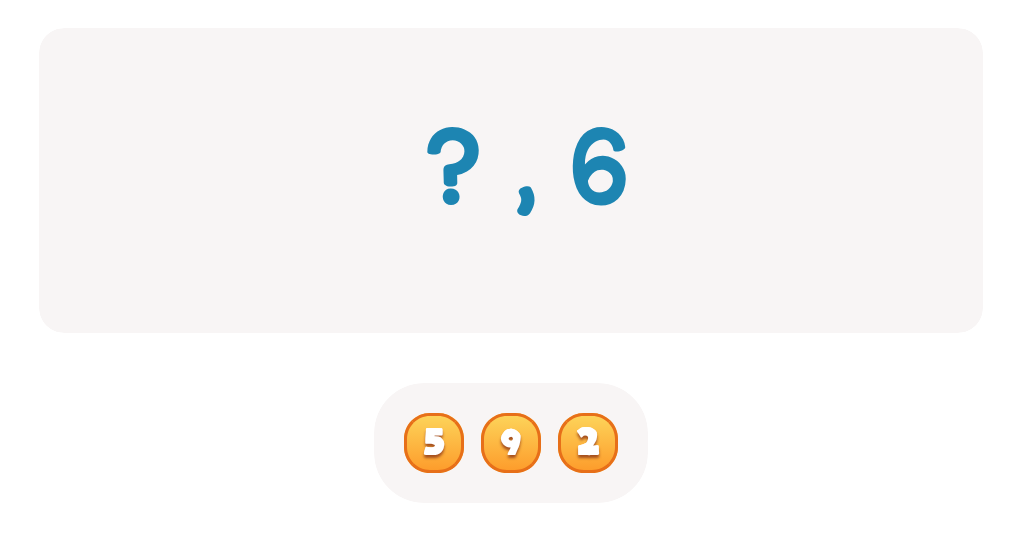Number Recognition Normal Counting Worksheets for Ages 6-8
8 filtered results
-
From - To
Enhance your child's counting skills with our engaging Number Recognition Normal Counting Worksheets for ages 6-8. Designed to foster a love for math, these worksheets provide a fun and interactive way for young learners to practice recognizing numbers and honing their counting abilities. Each worksheet features vibrant illustrations and age-appropriate exercises that cater to different learning styles. From tracing numbers to interactive counting games, our resources help reinforce fundamental math concepts. Ideal for classroom activities or home learning, these worksheets will support your child’s development while ensuring they enjoy the process of mastering numbers. Embrace the joy of learning with Kids Academy!
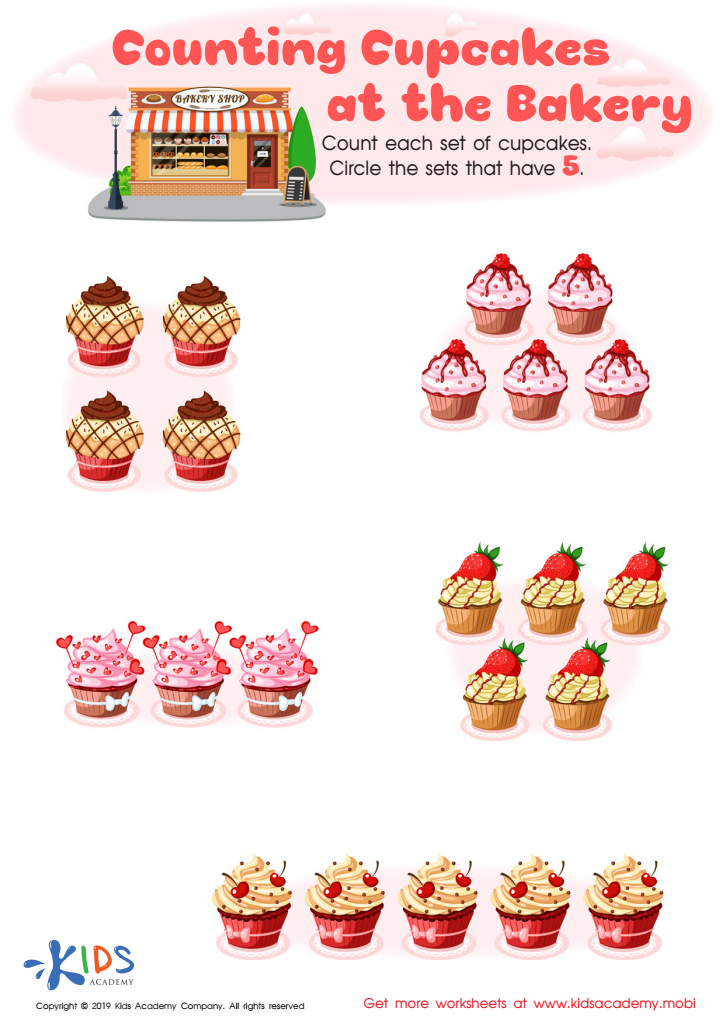

Counting Cupcakes Worksheet
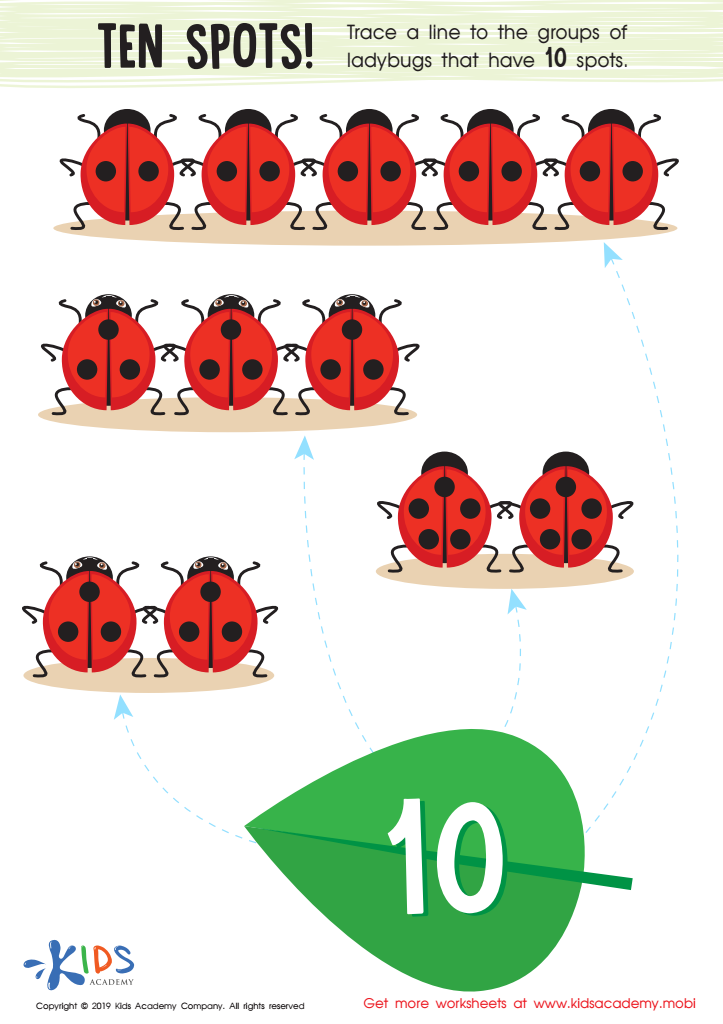

Ten Spots Worksheet
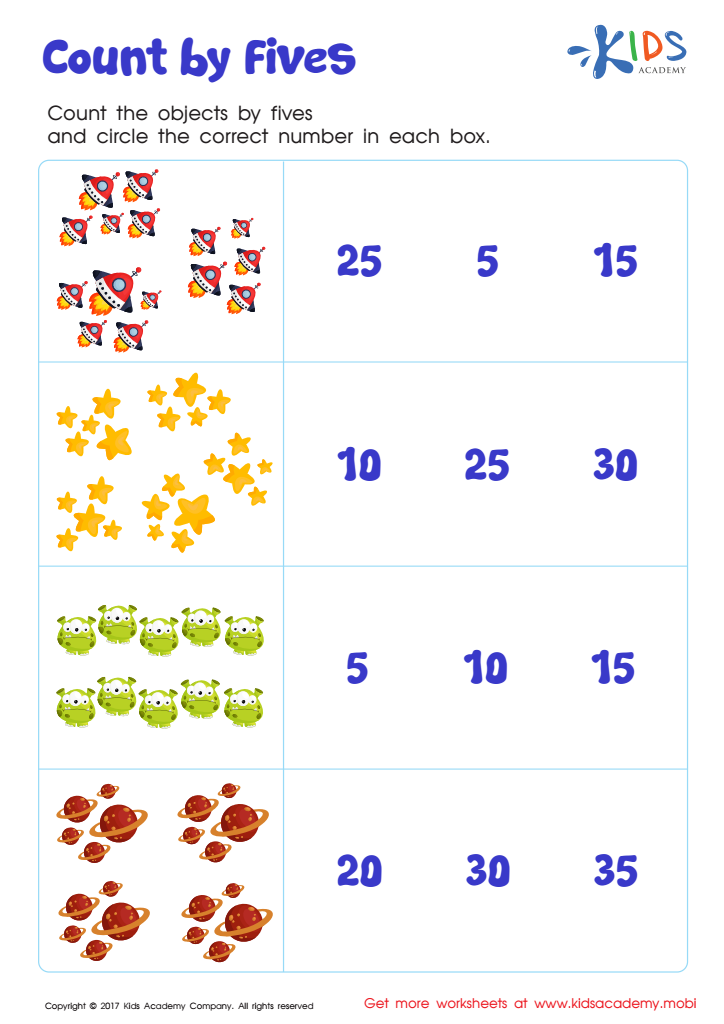

Skip Counting by 5s: Space Math Printable
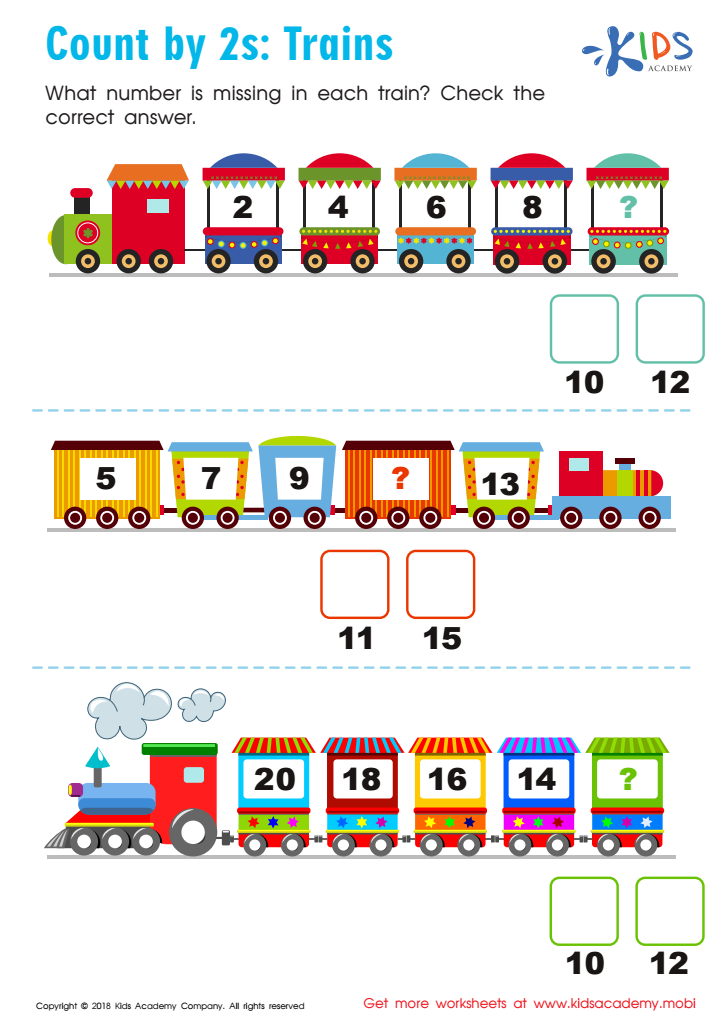

Count by 2's: Trains Worksheet
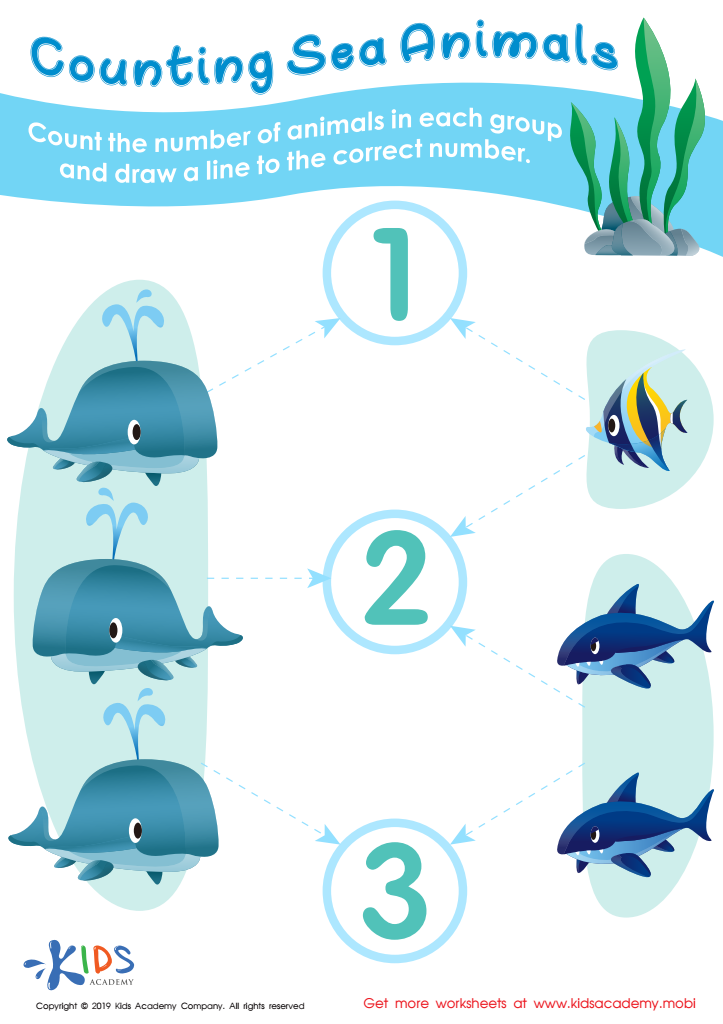

Counting Sea Animals Worksheet


Frog Countdown Worksheet
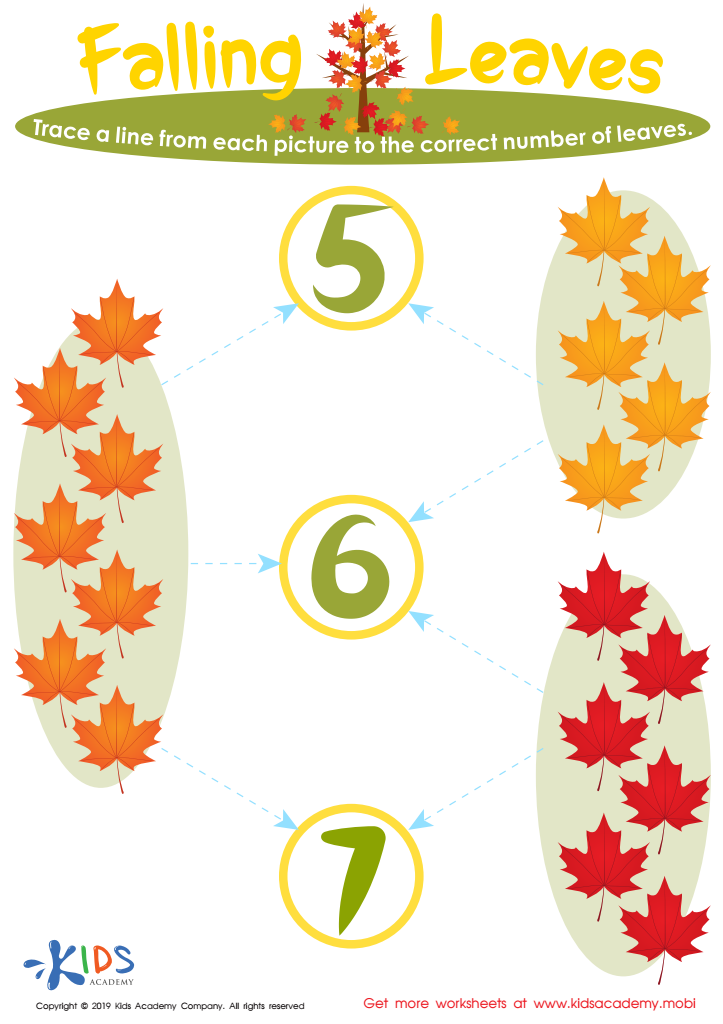

Falling Leaves Worksheet
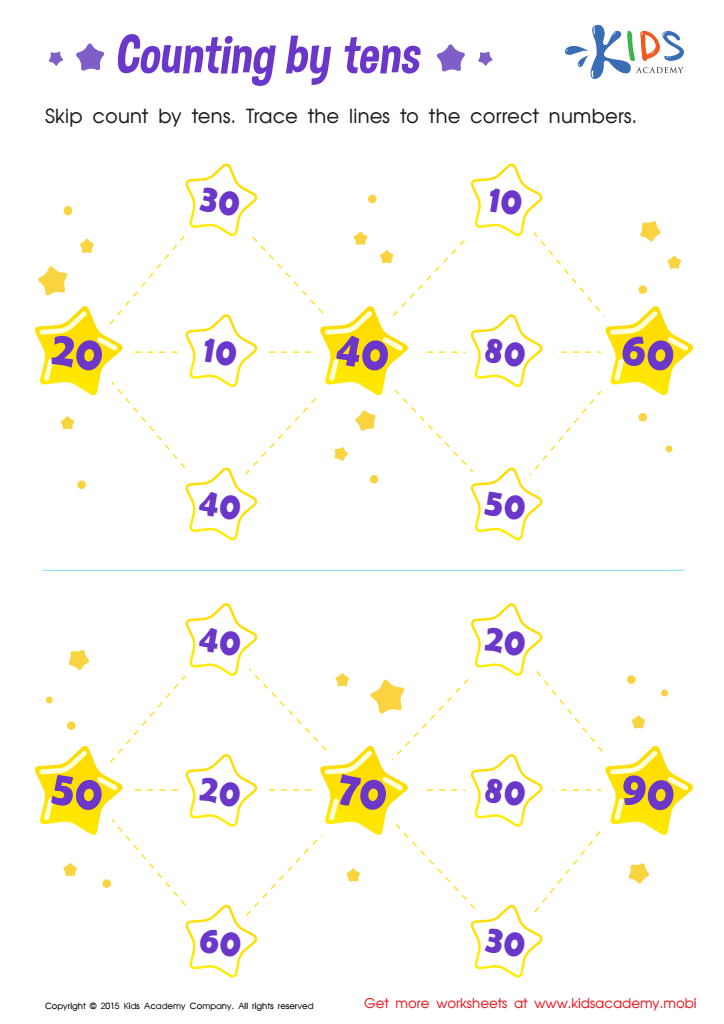

Learn Dozens: Counting by Tens Printable
Number recognition and counting are foundational skills crucial for children aged 6-8. At this stage, students are transitioning from basic arithmetic to more complex mathematical concepts. Number recognition—the ability to identify numbers so that students can understand what they represent—helps children grasp concepts like quantity and order. Mastery of this skill fosters confidence, enabling children to tackle math-related tasks without fear.
Furthermore, normal counting is not merely rote memorization; it involves understanding sequences, patterns, and relationships between numbers. These concepts lay the groundwork for addition, subtraction, and eventually multiplication and division. Teachers and parents should prioritize these skills, as early mastery directly impacts academic performance in later grades.
Children who struggle with number recognition and counting may find themselves at a disadvantage not only in math but across other subjects that rely on quantitative reasoning, such as science and economics. Early intervention through engaging activities can help them keep pace with peers and develop healthy math habits.
In essence, fostering number recognition and normal counting empowers children with critical problem-solving skills essential for their academic success and lifelong learning. Parents and teachers share the responsibility of nurturing these foundational abilities to set a positive trajectory for their children's education.
 Assign to My Students
Assign to My Students
